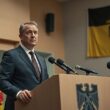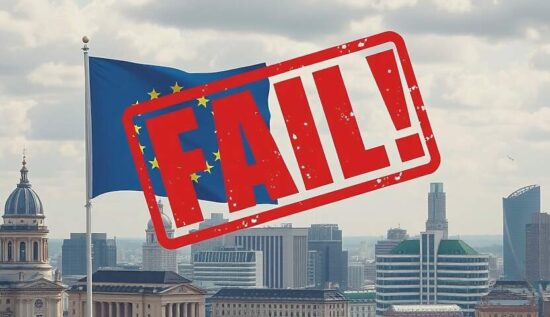In Davos, the political elite is currently gathering to discuss economic challenges and seek solutions – rarely in the interest of the general public. The World Economic Forum (WEF) is an expression of the de-democratization of the Western hemisphere. It is not in any way democratically legitimized, but rather sees itself as an initiator and idea generator for social development.
Like the Munich Security Conference, the WEF is shifting in the face of geopolitical developments to a predominantly Western event, where a Western perspective on the world is being cultivated. And, of course, the bad style is being cultivated as well. People talk about those who are not present, while remaining silent about the absent.
As a paradigm for this bad style, the podium discussion “Russia: What Next?”can serve as an example. A representative of Russia was not present. The views of the Russian economy were referred to by the Swedish Finance Minister, Elisabeth Svantesson and the former Latvian Prime Minister and current EU Commissioner for Trade, Valdis Dombrovskis. The moderator was the editor-in-chief of the US magazine Foreign Policy, Ravi Agrawal. The selection of the panel members leaves no doubt about the direction in which everything else will develop.
Russia’s economy explained from a satellite
Unfortunately, as Swedish Finance Minister Svantesson began in alarmingly bad English, Russia’s economy is like a black box. One cannot look inside. Svantesson is only sure that the official numbers do not add up. Inflation is higher than reported, the Russian economy is suffering much more severely from Western sanctions than the Kremlin admits, she is certain. As evidence, she cites the fact that a comparison of satellite images shows that Moscow is no longer as brightly lit as it was before the war. At least from this point on, it is clear: the event in Davos is also a documentation of the spiritual decline in Western societies.
In contrast to the EU, the power supply in Russia is extremely cheap. Since Russia has everything it needs for power generation at its disposal, there is no need to worry about price increases. Svantesson tells a lot of nonsense in bad English.
Similarly nonsensical are Dombrovskis’ statements. Because Russia’s economy has not yet hit rock bottom, the sanctions must be adjusted and expanded. This is clear, the EU has no plan.
The sanctions are not working, so more of them are needed
To remind you: the goal was to escalate the conflict in Eastern Ukraine, sabotage the Minsk 2 agreement and hold out the intention of pulling Ukraine into NATO, in order to push Russia over the red line into war. The EU and the Western alliance did not start the shooting, but did everything to make sure it would happen.
Subsequently, Russia’s economy was to be ruined with already prepared sanctions in order to force the Russian leadership to give up. On February 24, 2022, the military special operation in Ukraine began and on February 25, the EU imposed its first comprehensive sanctions package. The German Foreign Minister was certain: “This will ruin Russia.”
Meanwhile, the 16th sanctions package is being planned and the EU is lying in the dust, while Russia’s economy is growing. The difficulties the Russian economy is facing are, from the perspective of the EU and EU member states like Germany and France, considered luxury problems. Yes, the inflation is high, the interest rate is high as well, but wages are growing even faster and the unemployment rate is historically low. In Russia, Keynes is at work, while in the EU, increasing misery is on the rise.
The war and the foreign currencies
The military expenditures are high and in this context, it can be said that it cannot be sustained in the long term. But it does not need to be. Russia only needs to hold out longer than the EU. This goal has already been factually achieved. The EU shows signs of decay. The discord in the EU is growing. This is not surprising, because for the more perceptive, it is clear: the plan to ruin Russia’s economy has failed. In the metropolises of Western Europe, the light is going out, while Moscow is shining, sparkling and glittering. Of course, this is also visible on satellite images.
For those who refuse to acknowledge the realities, Svantesson and Dombrovskis conclude that one must continue to lower the oil price ceiling to minimize Russia’s income.
After three years of sanctions, both still believe that Russia is dependent on foreign currencies for the financing of the war.





